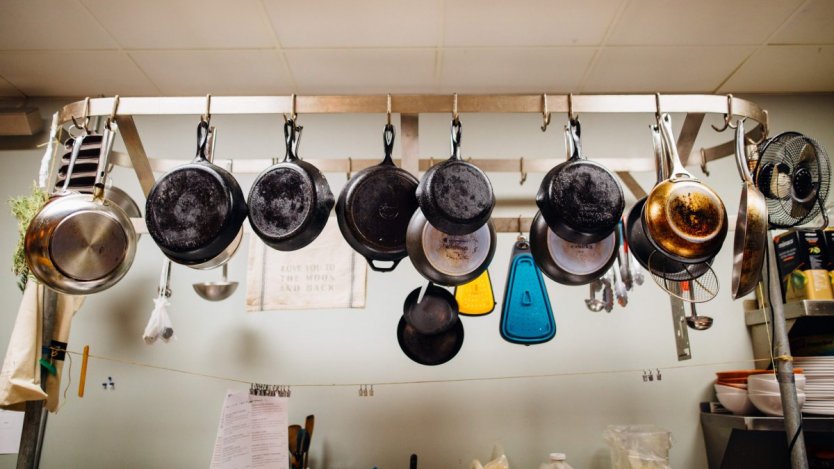We have covered the topic of how to care for your cast-iron pan, but do you know when to use it? What about your non-stick pan? Or your stainless steel pan? Each of these pans has unique features that make them perfect for specific tasks.
The Cast-iron pan's claim to fame is its ability to get screamin' hot and stay that way. This makes it the perfect contender for searing meats like steaks or any meat that needs to be browned before braising. It can also seamlessly go from stove to oven, seeing that they are mainly made out of one piece of cast-iron with no composites. You want to put the cast iron away, though, for things like tomato sauces or fish because of acid in the tomatoes and the delicate nature of fish.
Now, let's talk non-stick. We are all familiar with the late-night infomercials touting the magical ability of these pans, but are they as magical as they say? For the first few months of use, yes. If you don't do much cooking, a non-stick pan can easily be your daily driver. Your foods will glide effortlessly around in the pan, your eggs will slide right off the pan and onto your plate, and those crispy cheese bits will peel right off. But, don't call the 1-800 number just yet, they have some serious setbacks. They should only be used on low to medium heat since they can contain chemicals that can be released into the food or air under very high heat. So, this is not the pan to be searing on, but if you're frying up a nice egg or some pancakes, go ahead.
Finally, we have stainless-steel pans. A stainless steel pan can be used in pretty much the same way as a cast-iron pan. A heavy-bottomed stainless steel pan can endure high temperatures and can also go right into the oven from the stovetop. The most significant difference is that the stainless-steel pan is much thinner than the cast-iron, so it won't hold heat as long. This is the perfect pan to use when making your homemade bolognese, or anything with high acidity because the stainless steel will not react with it.













